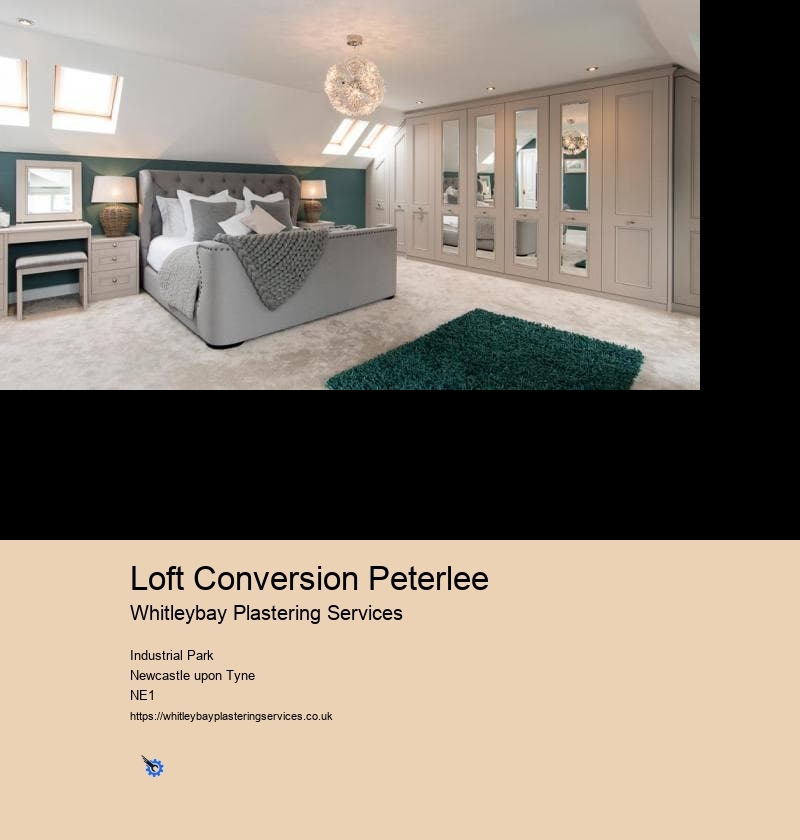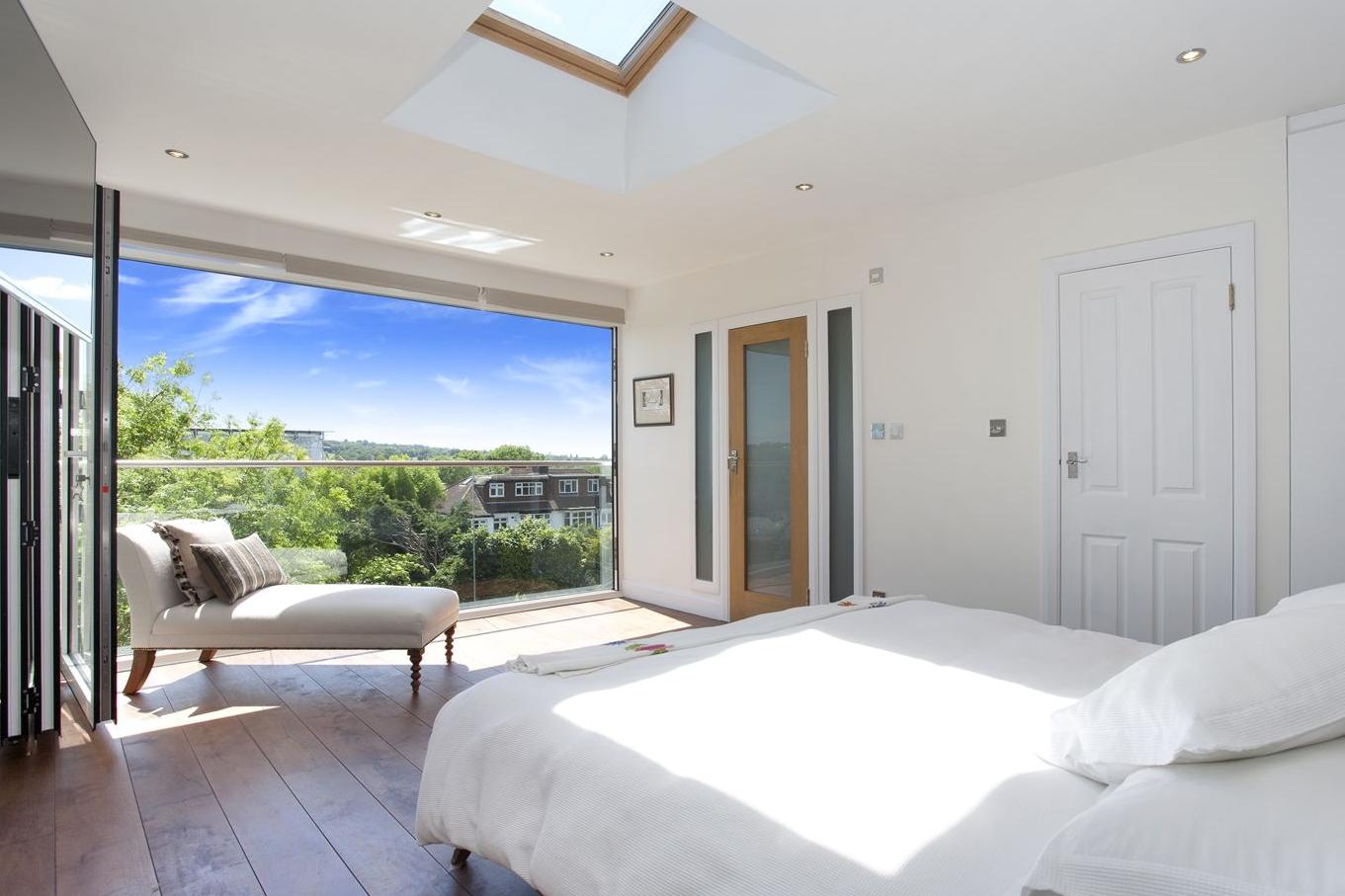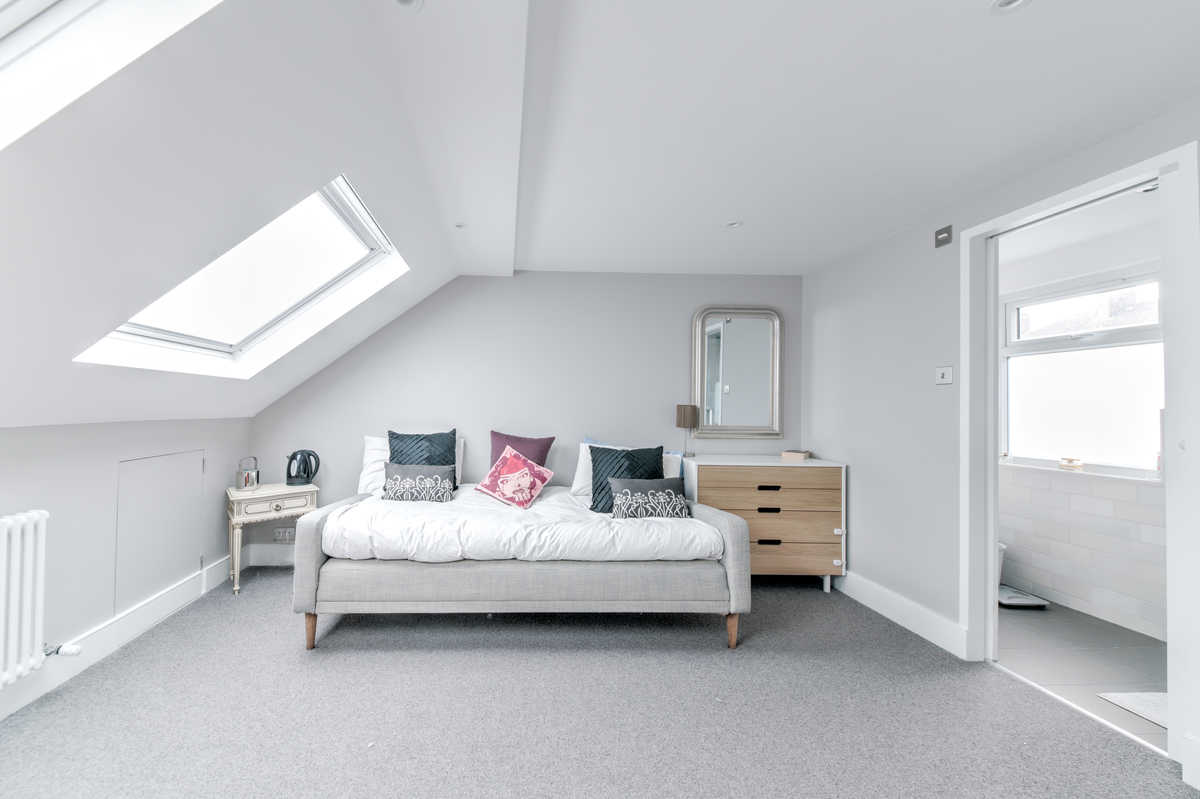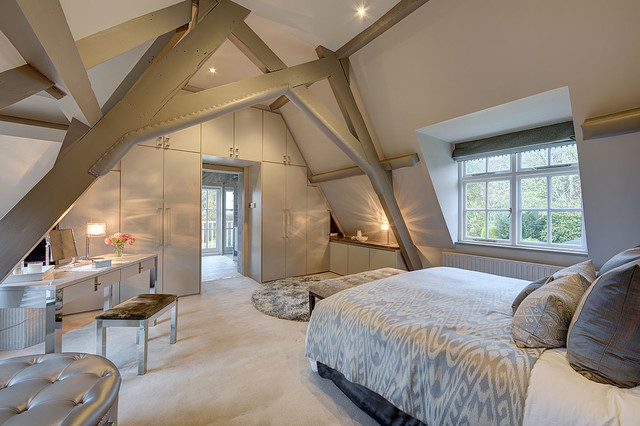Loft Conversion Peterlee
Loft Conversion Newcastle-upon-Tyne
Finally, if you’re not looking to make any major structural changes to your house, you may want to consider a Velux loft conversion. This type of conversion involves adding Velux windows to the roof of your house to create extra living space. Velux conversions are cost-effective and can provide plenty of extra living space without requiring any major structural changes.
The materials needed for a loft conversion can range from basic plywood and insulation to more complex items like steel beams and staircases. It is important to compare the price of materials from different suppliers to get the best value for money. Additionally, the type of insulation and ventilation required will also affect the cost, so it is important to factor this in when creating your budget.
Firstly, you’ll need to make sure the space is large enough to provide a usable room. The minimum space required for a conversion is approximately 25 square metres, although you’ll need more if you’re planning to create a bedroom with en-suite facilities. You’ll also need to check the height of the space. For most conversions, you’ll need at least two metres of headroom.
The next most expensive part of a loft conversion in Newcastle-upon-Tyne is likely to be the cost of the insulation. Insulation is essential for any loft conversion as it helps to regulate the temperature inside the loft. The cost of insulation depends on the type of insulation chosen, as well as the amount of coverage needed. Generally speaking, the more insulation needed, the more expensive the project will be.
However, when deciding between a loft conversion or an extension, there are other factors to consider beyond cost. For example, you should consider the amount of space you need and the type of conversion or extension that best suits your requirements. If you need additional living space, an extension can provide you with more rooms, while a loft conversion can provide you with additional bedrooms.
When it comes to deciding whether to invest in a loft conversion, one of the most commonly asked questions is ‘will converting my loft add value to my home?’ The answer is yes – but it’s not quite as simple as that.
In conclusion, a loft conversion can add significant value to your home – but it’s important to consider the costs and make sure that the project is worth it. The cost of having a loft converted in Newcastle-upon-Tyne will vary depending on the size and complexity of the project, but you can expect to pay anything from £10,000 to £50,000.

Loft Conversion Newcastle-upon-Tyne
Loft conversions are an increasingly popular way to add extra living space to your home, but there is a common misconception that they take up a lot of space. It is true that a loft conversion can take up some space in your home, but it is important to understand that this depends on the type of loft conversion you choose. In Newcastle-upon-Tyne, the most popular type of loft conversion is the dormer loft conversion, which is very space-efficient.
Ultimately, the best option for you will depend on your budget, the amount of space you need and the type of home improvement you are looking for. Loft conversions are usually the most cost-effective option and can be a great way to add space to your home without sacrificing existing space. However, if you need more space and are willing to invest more money, then an extension could be the better choice.
Overall, converting a loft to a dormer can be a great way to add extra space and light to any home in Newcastle-upon-Tyne. However, it’s important to consider all the associated costs before embarking on the project. On average, a dormer conversion in Newcastle-upon-Tyne can cost anywhere between £10,000 and £30,000, but this cost can be higher depending on the size and complexity of the project.
Overall, the cost of converting a loft to a dormer in Newcastle-upon-Tyne will depend on the size of the loft, the type of conversion you choose, and the materials used. But with careful planning and budgeting, it is possible to convert your loft into a comfortable and stylish living space without breaking the bank.
When considering a loft conversion in Newcastle-upon-Tyne, one of the most important considerations is where the stairs will go. This is because the stairs are a key feature of any loft conversion, providing access to the new living space.
No matter what type of loft conversion you decide to go with in Newcastle-upon-Tyne, it’s important to make sure that you hire a reputable contractor to perform the work. Taking the time to research different contractors and make sure that they are qualified and experienced in performing loft conversions will help ensure that your project is a success.
Loft conversions can be a more affordable alternative to other types of home improvements, such as extensions. As they do not require the construction of new foundations or external walls, loft conversions tend to be less expensive to carry out.
Relevance
| Loft conversion | Attic |
| Roof | Rafters |
| Dormer | Lofts |
| Floor | Gable |
| Planning Permission | Mansard |
| Windows | Door |
| Insulation | Velux |
| Staircase | Eaves |
| Bedroom | Building Regulations |
| Bathroom | Plumbing |
| Joists | Ventilation |
| Stair | Architect |
| Ceiling | DIY |
| Hipped-roof | Building Control |
| Stud Wall | Staircases |
| Roofing | Hips |
| Joists | Stairway |
| Natural Light | Frame Structure |
Wikipedia says this about Newcastle-upon-Tyne
Loft Conversion Dormer Newcastle-upon-Tyne
Loft Conversion Cost
The most common type of loft conversion in Newcastle-upon-Tyne is a dormer conversion. This involves creating a new room in the roofspace by enlarging the existing roof. This type of conversion usually costs between £15,000 and £35,000, depending on the size of the loft and the materials used. The cost can be reduced by opting for a simpler design, such as a hip-to-gable conversion.
The second type of loft conversion is the dormer conversion. This involves building a new structure onto the existing roof, which is typically made from timber or metal. This type of conversion is more expensive than a rooflight conversion, but it is more flexible in terms of design and allows for greater headroom. The disadvantage of this type of conversion is that it can be quite disruptive to the existing structure of the home.
In conclusion, if you are considering converting your loft in Newcastle-upon-Tyne, it is important to first find out if you need permission. You may need to apply for planning permission or obtain permission from the building’s freeholder. The cost of the conversion will depend on the size and scope of the work required.
When considering whether or not you need permission to convert a loft in Newcastle-upon-Tyne, it is important to understand the various regulations and restrictions that may apply to your project. Depending on the size and scope of the project, you may be required to obtain planning permission from the local authority. In some cases, you may also need a building regulation approval, which is essentially a set of standards that the structure must meet in order to be deemed safe and secure.
When considering the costs associated with a loft conversion to a dormer, it’s important to factor in the cost of any additional materials or labour required. This includes the cost of new windows, doors, flooring, and other fixtures. Additionally, you may also need to factor in any additional professional services, such as architectural design or engineering, which can drive up the cost of the project.
Next, you'll need to consider the materials you'll be using. If you opt for high-quality materials like cedar shingles or slate tiles, the cost will be higher than if you use less expensive materials like asphalt shingles. Other factors you'll need to consider include the size of the dormer, whether you hire a professional to do the work, and the cost of any additional building permits or inspections that may be necessary.
The cost of having a loft converted in Newcastle-upon-Tyne will vary depending on the size and complexity of the project. Generally speaking, you can expect to pay anything from £10,000 to £50,000, depending on the amount of work that needs to be done. This cost will include the cost of planning permission, labour, materials and any follow-up work that needs to be done.

Loft Conversion Ideas
When considering the most expensive part of a loft conversion in Newcastle-upon-Tyne, it is important to factor in all of the costs associated with the project. From the roof to the labour costs, the total cost of a loft conversion can quickly add up. However, the result of a successful loft conversion can be well worth the expense.
When considering the cost of a loft conversion in Newcastle-upon-Tyne, it's important to factor in the cost of getting the necessary building permits. You'll need to get permission from your local council before you can start any work, and this can add a few hundred pounds to your total bill.
The cost of converting a loft in Newcastle-upon-Tyne depends on several factors, such as the size of the loft, the type of conversion you plan to do, and the complexity of the work. Generally speaking, you can expect to pay anywhere from £15,000 to £30,000 for a full loft conversion, including all labour and materials.
Finally, it is important to factor in the cost of any permits or permissions that might be needed. It is important to ensure that all building regulations are met, so it is important to check with local authorities to ensure that all of the required paperwork is in place.
Another factor to consider is the size of your loft. If you have a large loft space, you’ll have more room to work with, and you’ll be able to make the most of the conversion without losing too much space. On the other hand, if you have a small loft, you may have to sacrifice some of the space in order to fit in a loft conversion.
When considering whether to convert your loft, it’s important to weigh up the costs and benefits. A loft conversion can add considerable value to your home, and also provide much-needed extra living space. However, it’s important to make sure that the cost of the project is worth it in the long run – if the cost of the conversion is more than the value it adds to your home, then it’s probably not worth doing.
The cost of a loft conversion in Newcastle-upon-Tyne will depend on a number of factors, such as the size of the loft and the type of conversion you’re looking for. On average, a basic loft conversion in Newcastle-upon-Tyne can cost anywhere between £15,000 and £30,000. This includes the cost of materials, labour, and any necessary planning permission.
Finally, it’s worth exploring DIY options. If you’re willing to do some of the work yourself, you could save a lot of money. However, it’s important to be realistic about your DIY skills and to consider the amount of time it will take to complete the project. DIY can be a great way to save money, but you’ll need to be confident that you can complete the job.
Finally, the fourth type of loft conversion is the velux conversion. This involves installing velux windows into the existing roof, allowing for natural light and ventilation. This type of conversion is relatively inexpensive and can be done quickly. The disadvantage of this type of conversion is that it does not allow for much flexibility in terms of design and is not suitable for larger homes.
If you’re looking for something a bit more substantial, a mansard conversion can be a great option. This type of conversion involves adding a full new level to the existing loft space, creating an additional floor with plenty of headroom and light. Mansard conversions are more expensive than other types of loft conversions but they can add significant value to your home.
Loft Conversion Dormer
Overall, converting your loft can be an excellent way to add extra living space to your home. If you’re looking to have a loft conversion in Newcastle-upon-Tyne, then it’s important to do your research to make sure you get the best value for money. The cost of a loft conversion can vary depending on the size of the loft and the type of conversion you’re looking for, but on average it can cost anywhere between £15,000 and £50,000.
Have you ever thought about converting your loft? A loft conversion can be a great way to add extra living space to your home, and it’s often much more affordable than moving house. But how much does it cost to have a loft converted in Newcastle-upon-Tyne?
Finally, a hip-to-gable conversion is a great option if you’re looking to make the most of a larger loft space. This type of conversion involves creating a new gable wall and adding an additional floor to the existing structure. Hip-to-gable conversions are usually more expensive but they can make the most of a large loft space and can be completed relatively quickly.
The amount of space you’ll lose with a loft conversion depends on a variety of factors. The most important factor is the type of conversion you’re planning. Generally speaking, a dormer loft conversion will use up more space than a simple hip-to-gable conversion. For example, a dormer loft conversion may require the removal of a section of the roof, while a hip-to-gable conversion can be done without removing any of the roof structure.

Loft Conversion Stairs
Before you decide to have a loft conversion, it’s important to do your research. Make sure you get quotes from several different companies, and read reviews to make sure you’re getting the best service possible. You should also speak to your local council to find out what planning permission is required for a loft conversion in Newcastle-upon-Tyne.
From there, the loft conversion firm will move on to the internal work, such as the installation of electrics, plumbing, and any other finishing touches. This part of the process can take anything from one to four weeks, depending on the type of conversion and the complexity of the job.
You should also consider the cost of legal fees, planning permission and building regulations. Make sure you factor these into your final budget.
When it comes to deciding between a loft conversion or an extension, the answer largely depends on your individual needs and budget. Generally, loft conversions tend to be cheaper than an extension, but there are certain factors to consider when making your decision.
When it comes to adding value to your home, converting your loft is a great option. The cost of having a loft conversion in Newcastle-upon-Tyne can vary depending on the size and complexity of the project. However, the investment can pay off in a number of ways, as it can add value to your property, as well as creating additional space and increasing your home’s energy efficiency.
A dormer loft conversion is a type of loft conversion that involves the construction of a vertical extension to the roof of a house, which creates additional headroom and floor space within the loft area. This is typically done by adding a dormer window, which is a window that is set vertically on a sloping roof and projects outward from the plane of the roof. Dormer loft conversions are a popular way to add space and value to a home, as they can provide an additional bedroom, bathroom, home office, or other living space. The process of creating a dormer loft conversion typically involves designing the new space, obtaining the necessary building permits and approvals, and then carrying out the construction work.
In conclusion, it is important to research the various regulations and restrictions that may apply when considering a loft conversion in Newcastle-upon-Tyne. This includes determining whether or not planning permission or building regulation approval is required, as well as any other restrictions that may apply to the project. The cost of obtaining these permissions and approvals will vary depending on the size and scope of the project, so it is important to factor this into your budget.
Loft Conversion PeterleeLoft Conversion Company
Another type of loft conversion that is popular in Newcastle-upon-Tyne is the roof light loft conversion. This type of conversion is less space-efficient than a dormer loft conversion, as it involves removing some of the roof in order to create the additional living space. However, this type of conversion is much cheaper and quicker to complete, making it a great option for those who are on a budget or who need the extra space quickly.
The cost of a dormer loft conversion in Newcastle-upon-Tyne can also be affected by the contractor you choose. If you choose a reputable contractor with experience and good reviews, you’re likely to pay more than if you go with a less experienced contractor. Therefore, it pays to do your research and shop around to find the best deal.
In the UK, loft conversions are considered to be “permitted development”. This means that you don’t need planning permission from your local council in order to carry out the work. However, there are some restrictions that may apply to your specific situation.
Another type of loft conversion available in Newcastle-upon-Tyne is a hip-to-gable loft conversion. This type of conversion involves extending the roof of the property outwards to create extra headroom and floor space. The main advantage of a hip-to-gable loft conversion is that it can create a larger living area than other types of loft conversions. However, it is also one of the most expensive types of conversions due to the complexity of the work involved.
In terms of cost, loft conversions are typically cheaper than an extension. This is because the conversion works with the existing structure of the house, so there is no need to build additional walls or foundations. Additionally, converting your loft requires less labour and materials than an extension.

Check our other pages :
- Loft Conversion Newcastle-upon-Tyne
- Loft Conversion Newcastle
- Loft Conversion Peterlee
- Loft Conversion Durham
- Loft Conversion Seaham
- Loft Conversion Consett
- Loft Conversion Ashington
- Loft Conversion Sunderland
- Loft Conversion Blyth
- Loft Conversion Chester-le-Street
- Loft Conversion South Shields
- Loft Conversion Cramlington
- Loft Conversion Washington
- Loft Conversion Jarrow
- Loft Conversion Whitley Bay
- Loft Conversion Newburn
- Loft Conversion North Shields
- Loft Conversion Hexham
- Loft Conversion Durham
- Loft Conversion Ponteland
- Loft Conversion Prudhoe
- Loft Conversion Morpeth
- Loft Conversion Hartlepool
- Loft Conversion Stanhope
- Loft Conversion Rothbury
- Loft Conversion Bellingham